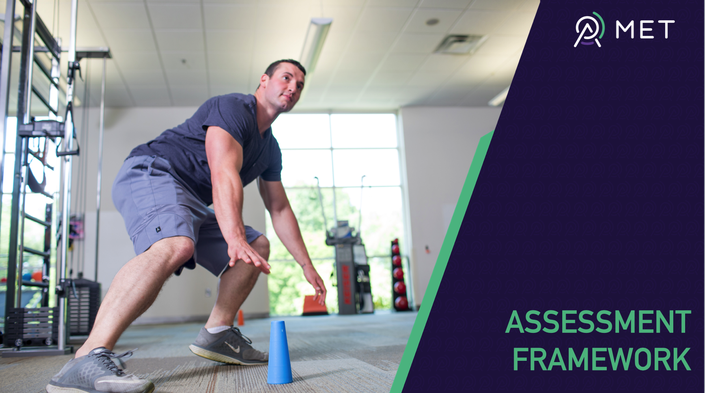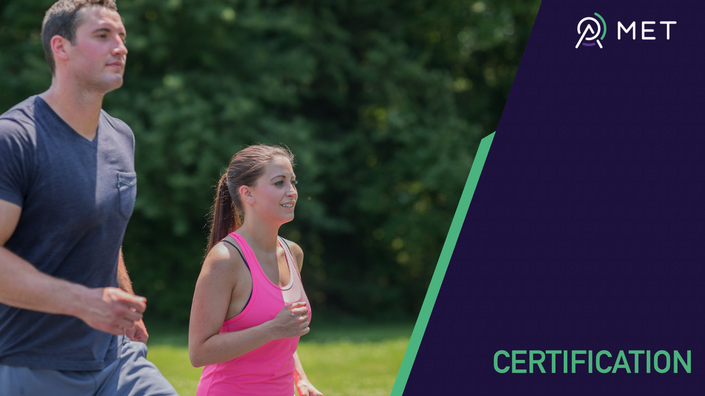Therapeutic exercise is now clearly recognized as the cornerstone of therapeutic interventions for musculoskeletal care. Unfortunately, a framework to achieve optimal outcomes for every single patient, every single time, is not universally practiced. Determining starting progression parameters for therapeutic exercise design, dose and delivery remains often guesswork and clinicians rely mostly on clinical expertise. This is problematic in that this lack of precision often results in suboptimal clinical outcomes.
Further, guesswork does not reflect the skill or expertise of rehabilitation professionals. Patients, clients and third party payers are expecting we deliver on our promise of producing meaningful improvement and achieving optimal outcomes in the most efficient manner. It is time for a reset. We must translate evidence-based rehabilitation into daily clinical practice to ensure that all clients receive adequate, appropriate intense, and progressive exercise rehabilitation.

Medical Exercise Therapy
The concepts taught in our clinical courses are the contemporary development of Medical Exercise Therapy (MET) concepts initially introduced by Oddvar Holten. Interestingly, those initial concepts have passed the test of time and are now being validated by the latest research in pain, exercise and rehabilitation science.
Belgian manual physical therapist, Leo Wouters, further developed the dosing strategies for therapeutic exercises utilized within the MET clinical framework. With research performed at Andrews University, Berrien Springs MI, USA, we further developed the MET clinical framework for implementation of precision design, dosing and delivery of therapeutic exercises in daily clinical practice.
MET is an outcome driven intervention model, starting with assessing the functional and movement needs of the patient. MET is a no-nonsense rehab approach without gimmicks for patients who expect optimal outcomes and for providers who have the courage the place the patient in the center without compromise. MET integrates the latest in exercise and rehabilitation science, manual therapy and modalities.
The course curriculum consists of two 3-day courses and provides a step-by-step approach for implementing the MET frameworks in daily clinical practice, regardless of the practice setting. After taking the two courses you can complete a case study and apply for your CMET certification.
Upcoming Course -
Hand & Orthopedic Physical Therapy Specialists
Salt Lake City, UT
April 29-30, 2023
Contact Nan Crandall for registration
Nan.C@handandortho.com
Upcoming Course - 3 day live - 24 CEU
(Includes Propriofoot and 3 additional CEU online)
January 2024
Andrews University, Berrien Springs, MI
Registration: ptpostpro@andrews.edu

DAY 1 - MAIN TOPICS
Value Based Interventions
Therapeutic Exercise (TE) vs General Exercise (GE)
Matching TE to patient objectives
Medical Exercise Therapy
Training principles
Implementation Constructs
Inter- and intra- session progression
Time- and criteria-based progression
Integration of manual therapy and modalities
TE for Neuromuscular Performance
Design considerations
HHD: Muscle-bias Tests
Delivery consideration

DAY 2 - MAIN TOPICS
TE for Neuromuscular Performance
Progressive loading vs dosed loading
From HHD to Clinical Fatigue Test (CFT)
HHD: Exercise-bias Tests
Dosing Guidelines
De-loading
Blood Flow Restriction Therapy
Safety Concerns and Medical Screening
Appropriate Patient Selection
Blood Flow Restriction Pressure Assessment
Dosing and Progression guidelines

DAY 3 - MAIN TOPICS
TE for Symptom Reduction
Algometry
Unloading (concentric/ concentric)
Eccentric and isometric loading
TE for Range of Motion
Total End Range Time
Eccentric lengthening
TE for Sensory-Neuro-Motor Control
Expanded Test of Sensory Integration and Balance
Dual Task Learning





